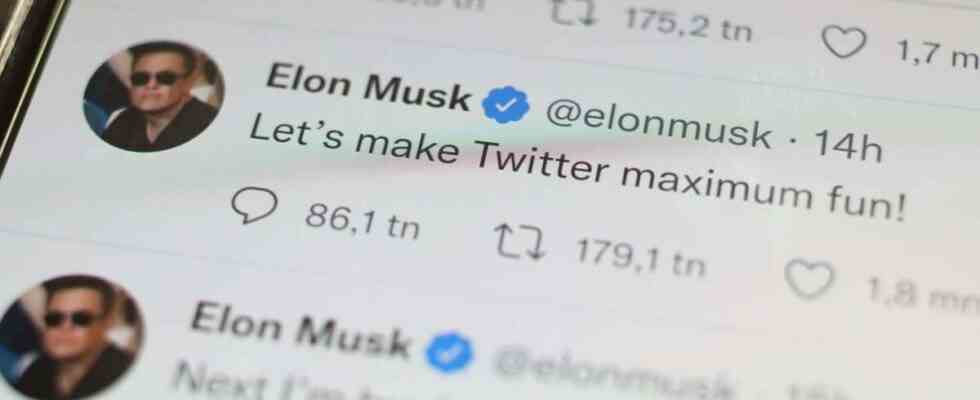Can moderation really be considered covert censorship? If the question often comes up when we talk about social networks, the answer is divided. Recently, the debate was revived during the presidential campaign by Marine Le Pen. In its program for digital, she wanted “no longer to impose censorship on the content” disseminated by Internet users on social networks.
More recently, the takeover of the social network Twitter by the American billionaire Elon Musk, who has never ceased to highlight his desire to promote freedom of expression, has sparked similar debates on the other side of the Atlantic. In the clan of the Republicans, several elected officials applauded this takeover which would put an end to a policy of moderation deemed too severe. The example of the banishment of former President Donald Trump is on everyone’s mind. Republican Jody Hice, member of the House of Representatives, thus welcomed “the return of the first amendment”, which advocates freedom of expression in the United States. A point of view shared by the new director of Twitter, from the libertarian movement.
“Censorship and moderation are not the same”
This change in philosophy of the social network, described as one of the most powerful, is far from unanimous. “There is no censorship, there is only respect for the law”, assures Charles Cohen, founder of the start-up Bodyguard, specializing in the moderation of hate content on the Internet. “The censorship that Marine Le Pen talks about, for example, are accounts that have been banned because the behavior of users was not appropriate. Platforms are required to respect the law and therefore remove illegal content.
An observation shared by Me Gérard Haas, a lawyer specializing in new technologies and intellectual property law. “In our democracy, freedom of expression is an absolute right but what is reprehensible is the abuse of this freedom. It is a fault that can be sanctioned or punished”. The fact remains that from one country to another and even more from one continent to another, the rules in this area vary. “Anti-Semitic and racist remarks are much more authorized in the United States”, assures Charles Cohen. And even if Elon Musk has pledged that the new Twitter will respect the legislation of each country, professionals are worried. “This means that US content will be left on Twitter because it complies with the law there. This was not the case before, because Twitter removed posts that legally could not be left,” notes the founder of Bodyguard.
Brussels arms itself against online hatred
Ironically, at the same time, Brussels adopted new texts, the DMA (Digital Market Act) the Digital Services Act (DSA), which strengthens the fight against illegal content and disinformation. “With these texts, Elon Musk will be obliged to respect our rules in Europe”, assures Me Gérard Haas. Before adding: “What has been done at Brussels level allows more controls, not a posteriori but a priori”. Through a series of guarantees accompanied by sanctions, these texts thus make it possible to strengthen the regulation of platforms which, according to him, “have as much power as States and as many users as populations”.
Following the change of ownership on Twitter, the start-up Bodyguard expects to see “an increase in toxicity, violence and hatred, not necessarily illegal content that will be left on the platform” on Twitter. . This is why Charles Cohen would like Twitter to “leave the choice to the user” on the content visible online.

